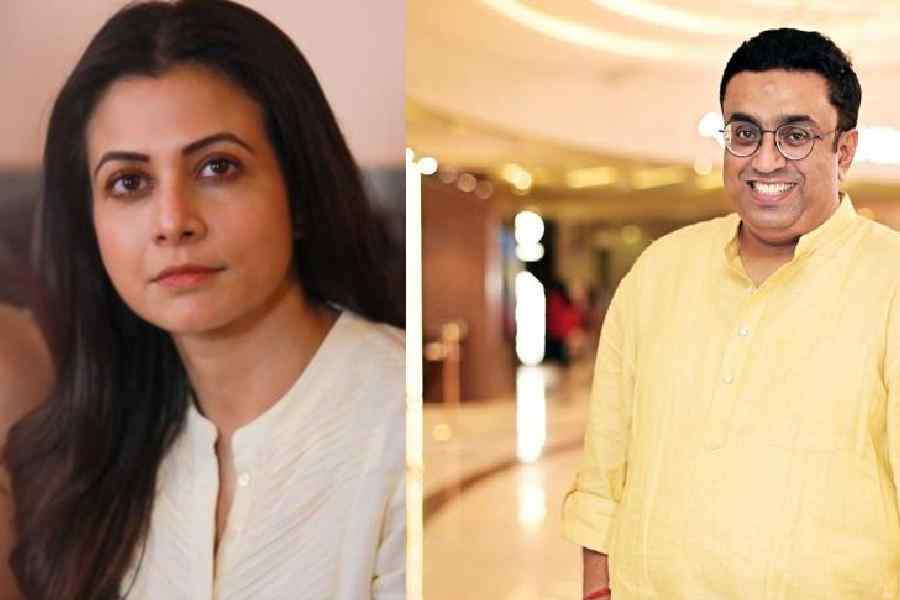The detective story genre is essentially — even when written by women, even when the detectives are female — a ‘masculine’ genre, which reached stasis, if not perfection, by the sixties.” — Marty Roth in Foul and Fair Play: Reading Genre in Classic Detective Fiction (1995).
And thus Suchitra Bhattacharya created Mitin Mashi. The latest cinematic version of a very popular novel by Suchitra Bhattacharya called Sarandaye Shoitan has been rechristened as Jongole Mitin Mashi and this is one of the major Puja releases of 2023. In the film, the famous sleuth deals with a case of poaching of elephants and the trafficking of ivory during her vacation in the jungles of Saranda.
Sadly, the elephant population is now shrinking terribly in the wild due to poaching and loss of habitat. This alarming rate has shocked wildlife activists, public authorities and officers-in-charge, out of their wits. This affects not only the ecology of the country but also the tourism sector takes a hit.
Director Arindam Sil has this fantastic ability to break gender stereotypes. Mitin Mashi’s stories are an amalgamation of the familiar and the unfamiliar, the every day and the exotic. The third eye denotes intuition and the ability to see things beyond what you see on the surface. Focusing on this chakra assists in visualising and understanding the world beyond desires and distractions. So Mitin with her third eye clearly defines the vision and goal of a sleuth.
Arindam has taken a very interesting route of a family outing and then the protagonist falls into the trap of her work ethic. A jungle, waterfall, deer... a great thriller in a holiday destination always reminds one of Ray... but this locale somehow very strongly reminds one of Buddhadeb Guha and Rijuda, which I am sure will be explored by Arindam soon. His understanding of ecology, his contribution to Sundarban and his study of wildlife redefine his craft and his love for nature in a unique way.
To be a good actor you have to be willing to break the rules to strive for something new. Koel Mallick is inevitably one of them. Having a good understanding of who you are, and what you are capable of doing makes you strong mentally, emotionally and even physically. You will therefore deliver a great performance when you are being tested in front of people and this will go a long way in making you great at your work. Confidence takes away fear and doubt and it thus supports in honing your career as a great actor.
Koel has proved it every time, especially with Mitin Mashi, it’s almost a signature Koel Mallick. Koel is not only ready to face the battle on screen but offscreen also the pressure of handling the box office. She knew that this time she had to fight both battles equally, with confidence and charisma. Every scene of her brings forth a larger-than-life Bangali woman detective, who is so brutally honest, physically and mentally.
Arijit Dutta as Purushottam Singh has a charismatic screen presence. Lekha Chatterjee, Ashim Roychoudhury, Kamalika and Subhrajit Dutta form a great team. Lekha is indeed one of the promising actors of our times. Subhrajit is always a great actor to watch out for, and he has played his character with subtlety. Ashim deserves a great salute for being as adorable as Abani. A special mention for Samiul Alam and Joydip Kundu. A grand combination of Subha Mudgal and Bickram Ghosh brings a completely different soundscape to Bengali cinema.
Suspense, action, and darkness are three crucial elements of a gripping thriller. Padmanabha Dasgupta has mastered the art of the thriller and as usual, he is brilliant at screenwriting. Anirban Chatterjee is excellent as a DoP. I think Sanglaap Bhowmick as an editor strongly believes in the philosophy of Esther Freud who said, “Editing is everything. Cut until you can cut no more.” Jongole Mitin Mashi deserves a big round of applause for the editing as well.











